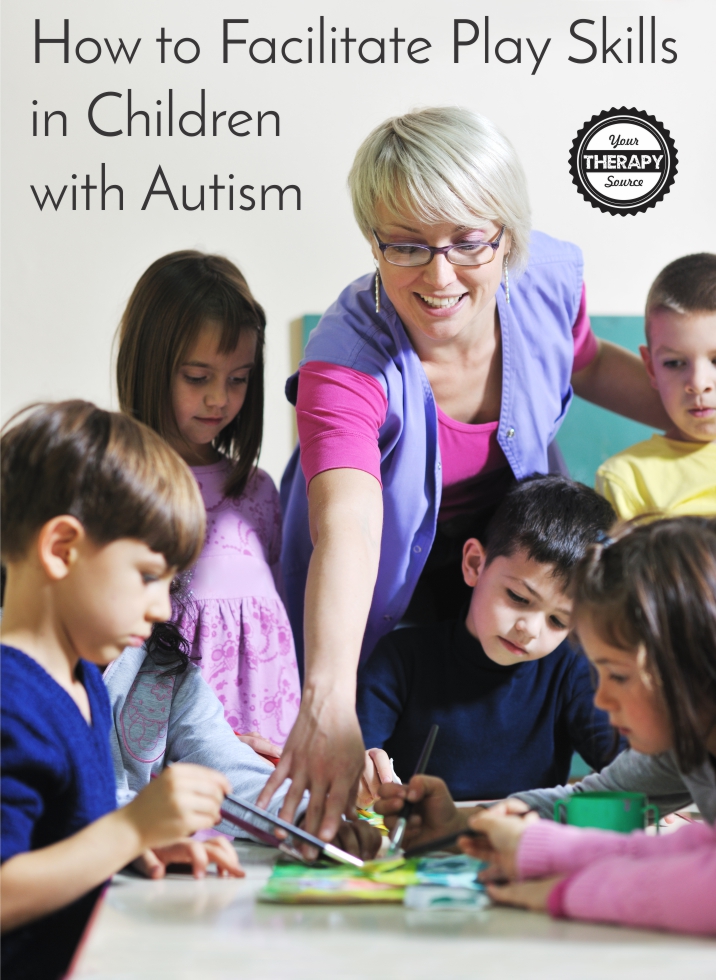How to Facilitate Play Skills in Children with Autism
 How to Facilitate Play Skills in Children with Autism
How to Facilitate Play Skills in Children with Autism
Playtime helps all children develop communication, social, cognitive, and motor skills. For children with autism, difficulties with language, social skills, and motor skills may be present. In addition, pretend play skills can be delayed. Parents, teachers, and therapists need to learn how to facilitate play skills in children with autism. Peer-mediated intervention can be used to promote child engagement and learning.
Play Skill Development During Typical Development
Children move along a continuum to develop play skills. Infancy begins with sensorimotor exploration play. Around 9-12 months, children begin to learn the functional use of objects in her or his environment. At 12 months functional pretend play emerges. From 12-24 months, pretend play becomes more complex play schemes. Around 24 months, children have a range of functional play acts, use object substitution, and play acts can be directed toward others. Narrative based play emerges around 30 to 42 months with children relying less on the use of props and more on the use of language to narrate play, taking on varying play roles, and integrating several play schemes into one play episode with many characters and participants.
Young children with autism may exhibit difficulties in determining the functional use of objects, creating complex play schemes, using object substitution and advancing play schemes.
Using Peers to Support Play Skill Development in Young Children with Autism
When using peers to support play skill development in young children with autism the research indicates that two peers (or a higher ratio) to one child with autism is recommended. In addition, any child with autism regardless of ability can benefit from peer-mediated play. Once play goals have been established work on the following:
- including a large variety of toys that can facilitate a range of play skills i.e. pretend play props, balls, blocks, trains, puppets, bubbles and more.
- selecting peers that: share common interests, have age appropriate communication skills and a variety of boys and girls.
- pre-training the peers if necessary to: familiarize them with some of the ways the children with autism may communicate and review the roles of the peers (help classmates, guide play but not direct play and keep trying).
- providing adult support to aid with peer-mediated play encouraging natural play experiences.
Keep in mind that complex play skills are normally developed around 4 years of age, therefore it is important to encourage peer-mediated play strategies during the preschool years.
Reference: Patry, M. B., & Horn, E. (2018). Supporting the Play of Preschoolers With Autism Through Peer-Mediated Interventions. Young Exceptional Children, 1096250618782179.
Check out all of our products to encourage pretend play in all children.
Read more about play:
Sensory Processing and Pretend Play
6 Ways to Adapt Pretend Play: Pediatric therapists can help to provide consultation services to adapt toys and activities in the home, preschools and early elementary schools.
Why Children NEED Pretend Play
Pretend Play and Executive Function
Playground Interventions to Help Young Children with Autism


